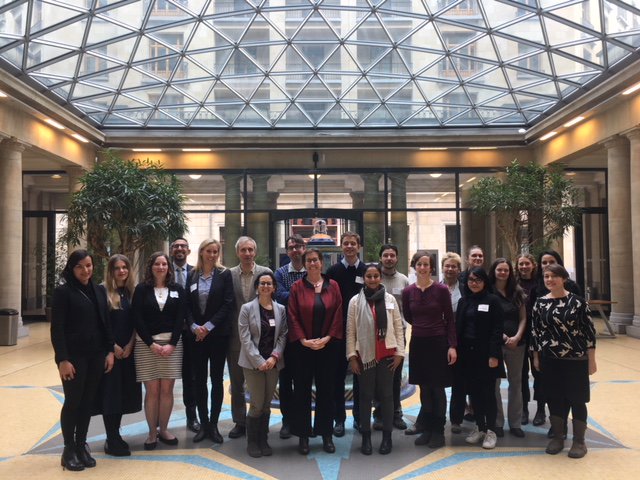
Broad convening showcases growing momentum for transparency in the garment supply chain
A meeting this week of actors involved in the labour movement and garment industry showed the increasing transparency efforts in the sector. The participants shared an assessment of the need to disclose supply chain information as a means to enhance corporate accountability of companies towards workers and consumers, to improve learning and due diligence within the sector and to empower workers in these companies’ supply chains.
On 19 and 20 March, International Corporate Accountability Roundtable (ICAR) and Clean Clothes Campaign (CCC) gathered civil society organizations, trade unions, garment companies, multi-stake-holder initiatives and other actors in Brussels to discuss the future of transparency in the garment industry and to explore approaches towards collecting, sharing and using data. The discussion should be seen in the context of the work of the Transparency Pledge – a minimum standard on factory information disclosure which was launched by a coalition of nine human and labour rights organization and NGOs in 2017. Seventeen garment companies agreed to disclose information in accordance with the Pledge standards, while many other companies moved towards more disclosure in response to the coalition’s outreach work.
The first day of the convening was dedicated to enhancing cooperation between unions and civil society organizations and focused on making transparency relevant for worker empowerment and finding ways to standardize disclosure practices in the industry. The need for an open data standard for supply chain disclosure was widely felt among participants.
Ben Vanpeperstraete, of CCC, states: “Transparency is not a goal in itself. The key question is: how can we make supply chain data usable and accessible – not only for NGOs, but above all for workers? Disclosed information only becomes meaningful when it can be used to concretely prevent, mitigate or seek redress for actual violations that workers are facing within a supply chain.”
The second day of the meeting featured a dialogue with companies and multi-stakeholder initiatives as well as representatives of several political institutions and trade unions. Several of the companies supportive of the Transparency Pledge joined in the discussion. Taking stock of the road towards transparency that all present in the room have laid behind in the previous years, there was a lot of appreciation for efforts to create common standards within the industry through the Pledge and a shared feeling that the move towards more transparency will continue.
Amol Mehra of the ICAR says: “Right now we see a group of leaders within the industry, who have stuck out their necks by disclosing information on their supply chain, while many companies are still ignoring the growing momentum towards more transparency. The only way to eventually level the playing field is for mandatory regulations to be put into place, which makes sure that due diligence will become what it should be: a binding obligation of apparel companies towards the workers in their supply chain.”